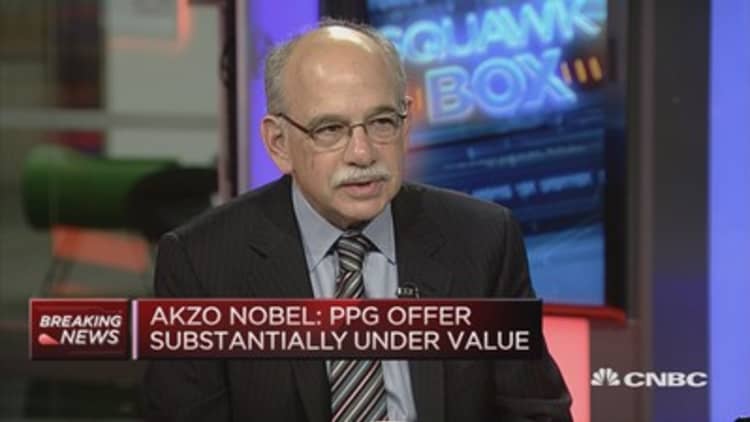Germany is often described as the "powerhouse" of Europe, but the health of the world's fourth largest economy is not as rosy as most people think, according to one economist.
"The crack in Germany's economy has become most evident in consumer spending. Retail sales volumes have slowed consistently since growth rates peaked in mid-2015. They have crashed in the last six monthly reports," Carl Weinberg, chief economist at High Frequency Economics, said in a note earlier this week.
Hard data shows that Germany's economy has been facing problems for at least the past six months, despite an uptick in growth at the end of last year. At the same time, income has been slowing dramatically and the reasons behind this are far from clear.

"As domestic demand is imploding, so is foreign demand," Weinberg added. "Exports are flat year-on-year. This is not to say that net exports are not rising. However, the flat gross exports mean industrial output to make goods for export is not growing."
"Without growth of either exports or domestic consumer spending, industrial production has stalled," Weinberg said.
On Tuesday, data showed German industrial new orders dropping by 7.4 percent on the month in January – the biggest monthly fall since 2009. According to Reuters, a breakdown of the January figures showed a drop of 10.5 percent in domestic demand and a contraction of 4.9 percent in foreign orders.
However, industrial production data released Wednesday gave some relief to analysts and investors. Industrial production rose by 2.8 percent on the month after contracting 2.4 percent in December.
Carsten Brzeski, chief economist at ING, said in an email on Wednesday that "the increase in industrial production shows that the shocking drop in December was mainly driven by the Christmas season and the cold winter weather. At the same time, however, the fact that on the year industrial production has remained flat shows just how difficult it is for the industry to get out of stagnation."
Looking at the hard data, Weinberg concluded: "Germany's real economic indicators are faltering. A clear crack in the trajectory is evident. Those are the facts. Invest accordingly."


